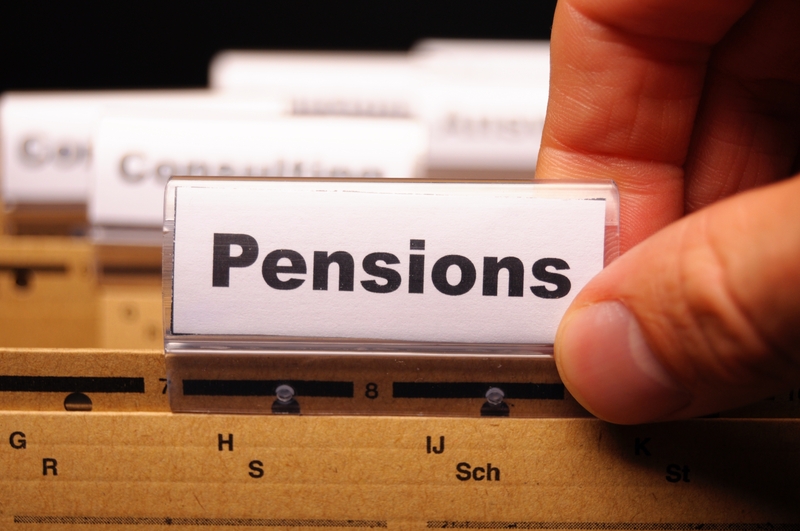How Expert Movers Keep Your Piano Safe During Relocation
Pianos are intricate and valuable instruments, often holding not just hefty price tags but immense sentimental value for their owners. Whether it's a grand concert piano or a cherished family upright, the process of relocating a piano demands much more than brute strength -- it requires specialized expertise, equipment, and great care. In this comprehensive guide, we'll explore how professional piano movers ensure your instrument is transported safely and securely, from preparation to placement in its new home. If you're planning to move and want to protect your piano investment, read on to understand why hiring experts is essential and what sets their service apart.
Why Specialized Expertise is Essential for Piano Relocation
Moving a piano isn't just a matter of convenience -- it's a matter of protecting an invaluable and sensitive piece of artistry. Pianos can weigh between 300 to over 1,200 pounds, with intricate action mechanisms and delicate finishes susceptible to damage from mishandling. Unlike standard furniture, pianos have:
- Fragile inner workings -- the action mechanism contains thousands of moving parts
- Highly sensitive tuning affected by movement and environment
- Special finishes prone to scratches, dings, and humidity damage
- Complex geometries, especially with grand and baby grand pianos
Expert movers bring knowledge of piano anatomy, proper lifting techniques, and custom equipment to safeguard these factors -- preventing costly repairs or irreparable harm.

The Step-By-Step Approach of Professional Piano Movers
1. Initial Assessment and Planning
Before any actual moving occurs, expert movers conduct a thorough assessment. This includes:
- Measuring the piano's dimensions and weight
- Evaluating both the current and new locations -- including doorway widths, staircases, and elevator accessibility
- Identifying potential obstacles or hazards along the path
- Planning logistics for specialized tools and manpower
This custom moving plan ensures every step is executed safely, even with the most challenging environments.
2. Preparation and Packing
One hallmark of professional piano movers is meticulous preparation. This phase involves:
- Securing the Keyboard Lid: The keyboard is one of the most fragile parts. Movers lock or padlock the lid to prevent it from opening during the move.
- Wrapping and Padding: Specialized moving blankets and padding are used to cover the instrument entirely, protecting the finish from scratches, dings, and bumps.
- Dismantling When Necessary: For grand and baby grand pianos, the legs, pedals, and lyre may be carefully detached, labeled, and wrapped separately to reduce stress on the body during transit.
- Taping and Securing: All coverings are taped securely using safe, non-abrasive tape that won't damage lacquer or finishes.
The entire process is designed to minimize risk during the most vulnerable stage: moving the piano from its resting place to the moving vehicle.
3. Specialized Tools and Equipment
Moving a piano safely requires more than manpower. Professional piano movers employ state-of-the-art tools, including:
- Piano Dollies: Heavy-duty dollies designed to distribute weight evenly and prevent strain on piano legs and frame
- Piano Boards (Skid Boards): Particularly for grand pianos, these boards stabilize the instrument and allow it to remain horizontal or at a safe angle during transportation
- Mover's Straps and Lifting Belts: These ensure a secure grip and eliminate the risk of dropping during lifting or maneuvering
- Ramps and Hoists: Used to negotiate stairs or load onto moving trucks safely and efficiently
Expert piano movers know which equipment is suitable for different piano styles and environments, ensuring both the instrument and property are protected.
How Do Movers Overcome Common Piano Moving Challenges?
Maneuvering Through Tight Spaces
Many home and building layouts pose unique challenges -- narrow hallways, tight corners, spiral stairs, or small doorways. Professional piano movers possess the experience and skill to navigate these obstacles, sometimes:
- Disassembling parts of the piano for easier passage
- Using advanced hoisting methods for upper-floor moves in high-rise buildings
- Employing creative angles and slow, controlled movements to avoid damage
Attempting these moves without expertise can lead to serious and expensive damage -- not just to the piano, but also to walls, floors, and personal safety.
Protecting Your Property During Relocation
Expert movers don't just protect your piano -- they also safeguard your surroundings by:
- Laying down protective floor runners
- Padding door frames and corners along the moving route
- Wearing gloves and using tools designed for tight maneuvering
With careful preparation and awareness, these specialists minimize disruption and leave your home unmarred.
The Importance of Climate and Environmental Control
Temperature and humidity can dramatically affect a piano's tuning, soundboard, and wooden components. Experienced movers recognize this and:
- Avoid leaving pianos exposed to direct sunlight or inclement weather
- Ensure transportation vehicles are clean, dry, and well-insulated
- Maintain careful handling during seasonal extremes
Upon delivery, they recommend letting the piano acclimate to its new environment for at least 24 hours before tuning or playing. This reduces the risk of wood warping, cracking, or tuning instability.
Insurance and Peace of Mind: Professional Protections
Reputable piano moving companies carry specialized insurance to cover accidental damage during transit. This provides full protection for owners, including:
- Liability Insurance -- covers damage to property during the move
- Instrument Insurance -- covers repairs or replacement of the piano if necessary
While expert movers dramatically minimize the risk of damage with their skill, this added layer of protection ensures complete peace of mind for piano owners.
Tips for Choosing the Best Piano Movers Near You
Not all moving companies are equipped or trained for piano relocation. Here's what to look for:
- Specialized Experience: Ask for details on how often they move pianos and what types they've handled
- Verified Reviews: Check online testimonials and independent review sites for honest assessments
- Appropriate Equipment and Insurance: Verify that the company uses proper piano moving tools and carries adequate insurance
- Transparent Quotes: Request an in-person assessment and a written, detailed estimate
Don't cut corners when it comes to moving an instrument as valuable as a piano. Expert movers may represent a larger up-front investment but can save you thousands in potential repairs or tuning costs later.
DIY Piano Moving: The Hidden Risks
While it may be tempting to save money by attempting a DIY move, relocating a piano without proper training can result in:
- Severe back, hand, and foot injuries
- Permanent damage to the instrument's structure or finish
- Damage to floors, walls, doorways, and stair railings
- Lost tuning or misaligned internal parts
Expert movers invest in their training for a reason: pianos are one of the most challenging household objects to relocate. Enlisting a professional not only ensures the piano's safety but also your own well-being.
What Happens After the Move?
Once your instrument arrives at its new home, expert movers can help place it optimally, taking into consideration:
- Floor Support: Ensuring the environment can support the instrument's weight
- Humidity and Temperature: Locating the piano away from drafts, vents, windows, or direct sunlight
- Post-Move Inspection: Checking for signs of stress or loose components and recommending tuning after acclimatization
These finishing touches ensure your piano remains in excellent condition long after the move.

Piano Moving FAQ: Everything You Need to Know
Is it necessary to retune my piano after moving?
Yes. Even with the utmost care, changes in humidity and temperature during relocation will affect the tuning. Wait 1-2 weeks after placement for the piano to acclimate before hiring a professional tuner.
How far in advance should I book expert movers?
As soon as your moving date is known. Reputable piano movers often book up quickly, especially during peak moving seasons.
Can regular furniture movers move a piano safely?
No. Even experienced furniture movers lack the specific training, tools, and insurance required for safe piano relocation. Insist on dedicated piano moving professionals for peace of mind.
What information should I provide movers for an accurate quote?
Provide detailed information on the piano model, location (pickup and delivery addresses), floor level, exact measurements (doorways, hallways), and any obstacles such as stairs, elevators, or tight corridors.
Conclusion: Trust the Experts for Safe Piano Relocation
Relocating a piano can be a nerve-wracking experience -- but with expert piano movers, you gain access to years of specialized skill and proven safeguards. From preliminary assessment to pristine placement in your new space, professional movers approach each step with care, precision, and respect for both your instrument and property.
Whether you're moving locally or across the country, investing in a reputable, specialist piano moving service reduces stress, protects your investment, and lets you focus on the music, not the move. Don't leave your cherished instrument's fate to chance -- trust those who know how to keep it safe, sound, and ready to play for many years to come.
- Plan ahead and book early
- Communicate all details of your move to your movers
- Always choose trained, insured experts for your piano relocation needs
Your piano deserves the best -- and so do you!